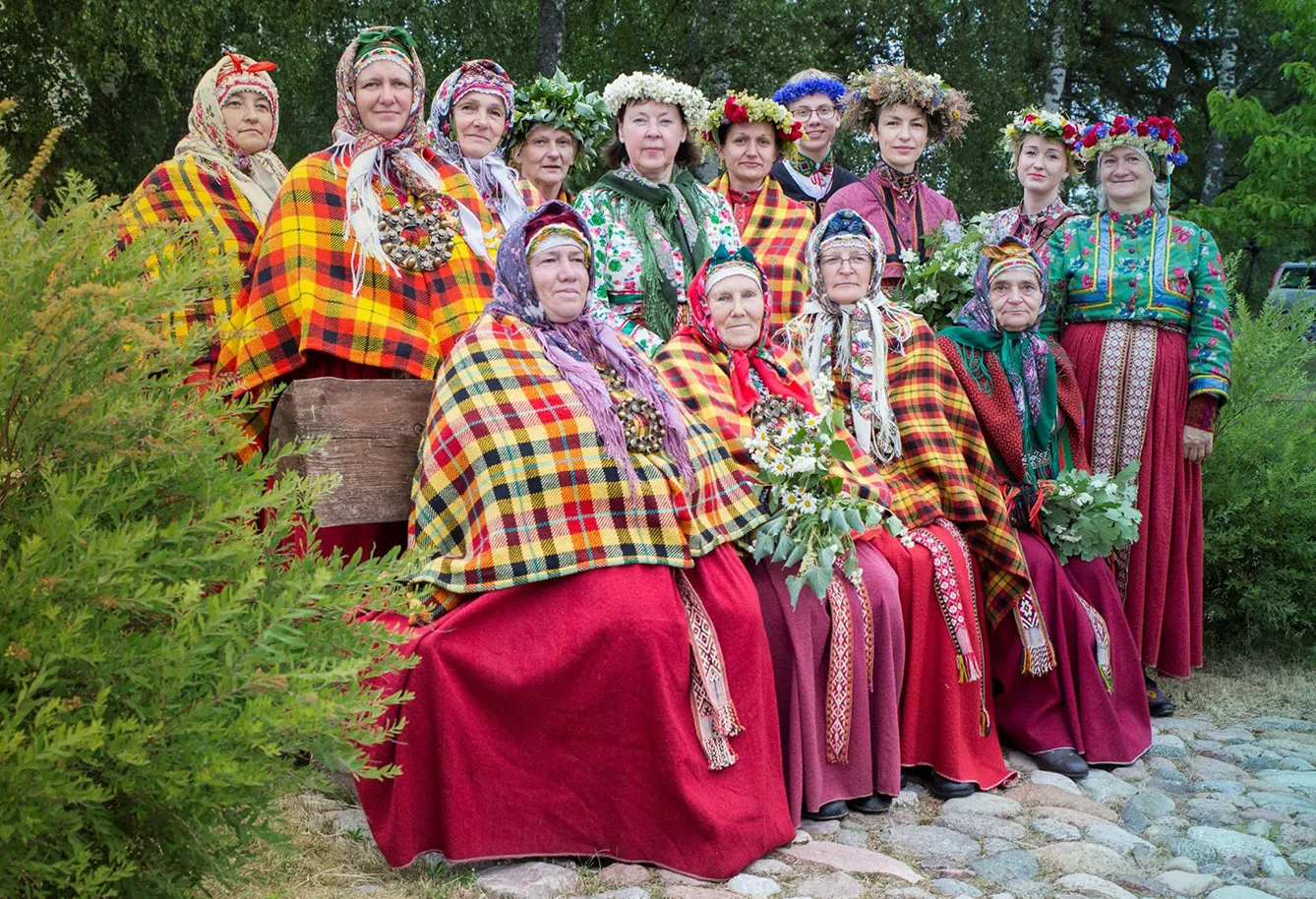Love. This beautiful phenomenon has inspired books, music, and art since time immemorial. So many sensational stories are rooted in love. One such touching tale is that of the Suiti – a Catholic enclave in Latvia where the predominant religion is Lutheranism, though the country is secular and the nation’s oldest ancestors are pagan.
It was there in the 17th century that a German landlord married a Polish noblewoman, and their love story sparked the blossoming of a unique Catholic community that still holds strong today, surviving even years of Soviet oppression. At the time, German nobles governed what is now the Kurzeme region of Latvia, and a manor system was in place. Thus, in order to wed his beloved Barbara Konarska, Johann Ulrich Schwerin converted to Catholicism, and his people were also made to convert.
The Suiti – a hardy folk
The Suiti Cultural Space is characterized by a very particular blend of religious, cultural, and folk influences. It is believed that the Polish influence allowed holding on to certain parts of the pre-Christian regional heritage that the German barons tried to eliminate. Later, the fact that the line between the religious and folk customs was blurred is said to have preserved the Suiti culture in the years of Soviet occupation. While the Soviets deliberately undermined the role of the church, people kept the tradition alive at home.
Sadly, brutal practices like deportation and collectivization considerably shrank the Suiti community. By 2009, when Latvia had long been free of Soviet rule, the situation had become critical. It was then that the Suiti Cultural Space was added to the UNESCO List of Intangible Cultural Heritage in Need of Urgent Safeguarding. Today, the Suiti Cultural Space is centered around the town of Alsunga, where the Spēlmaņu Krogs Tavern offers accommodation and the chance to eat and make local specialty foods.
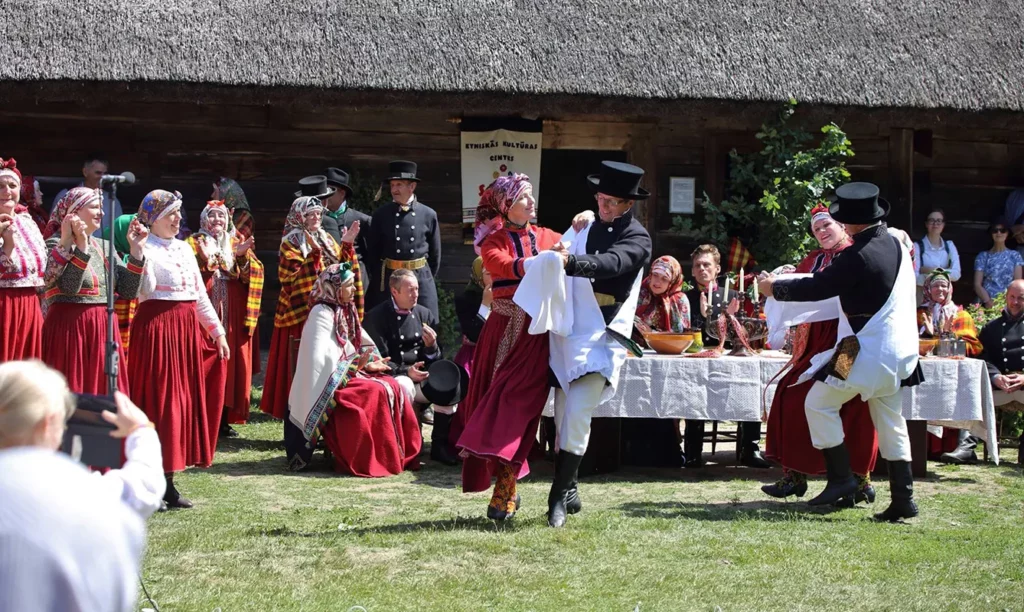
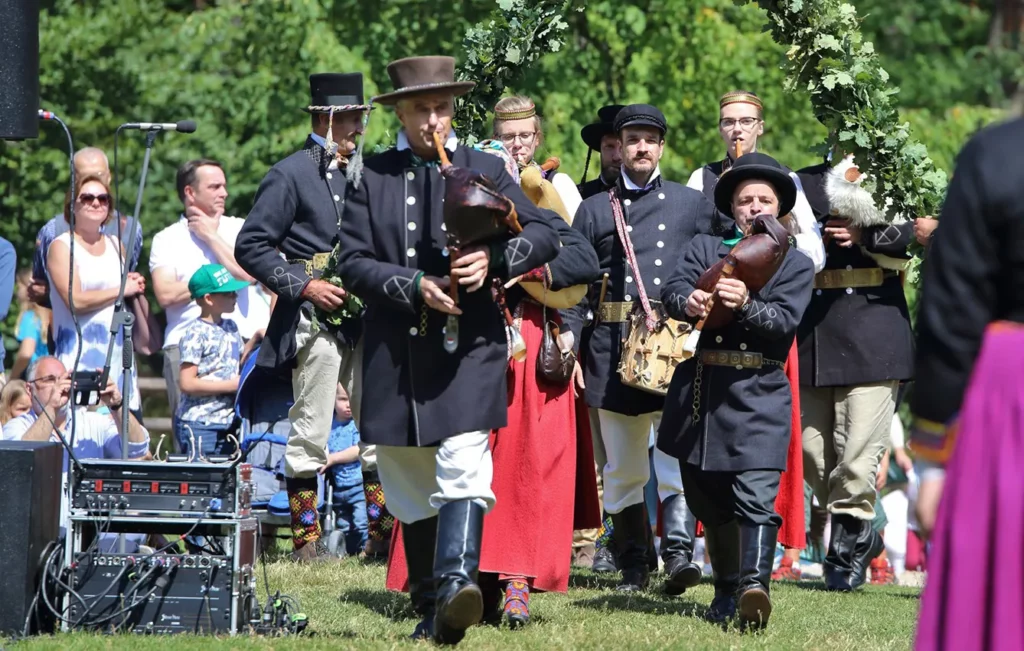
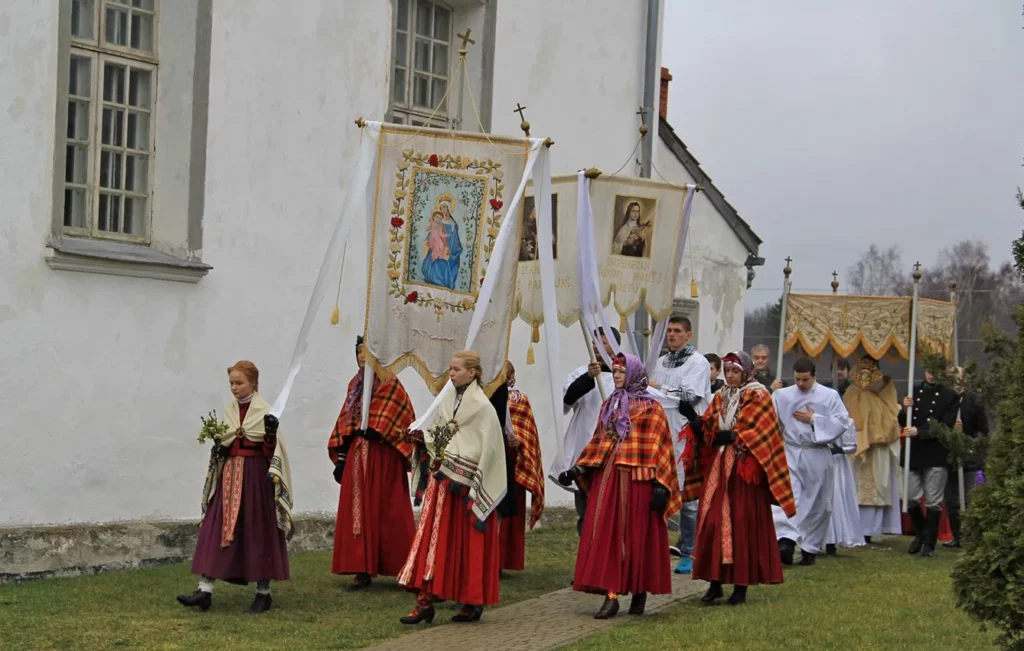
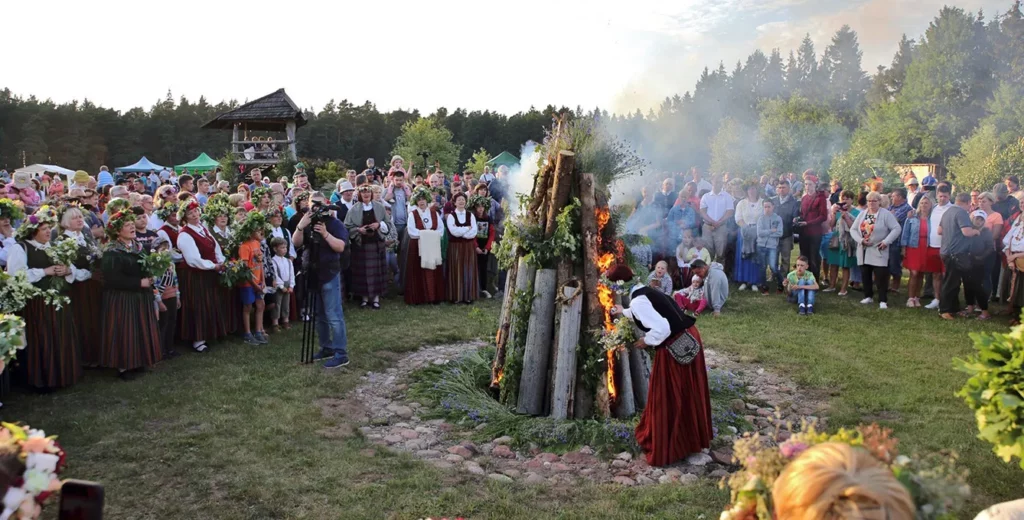
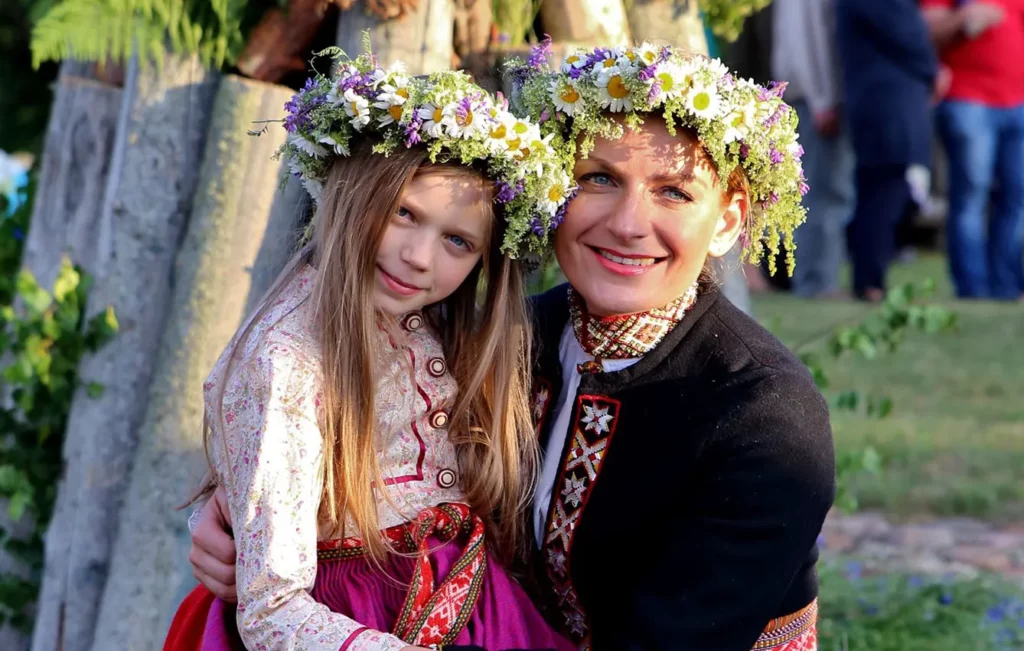
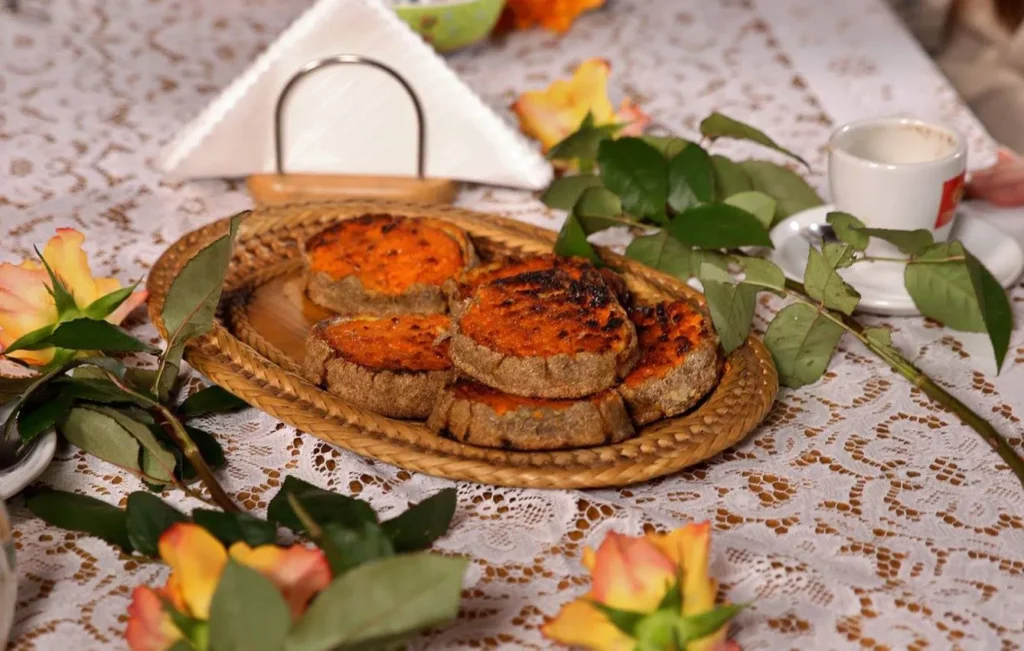
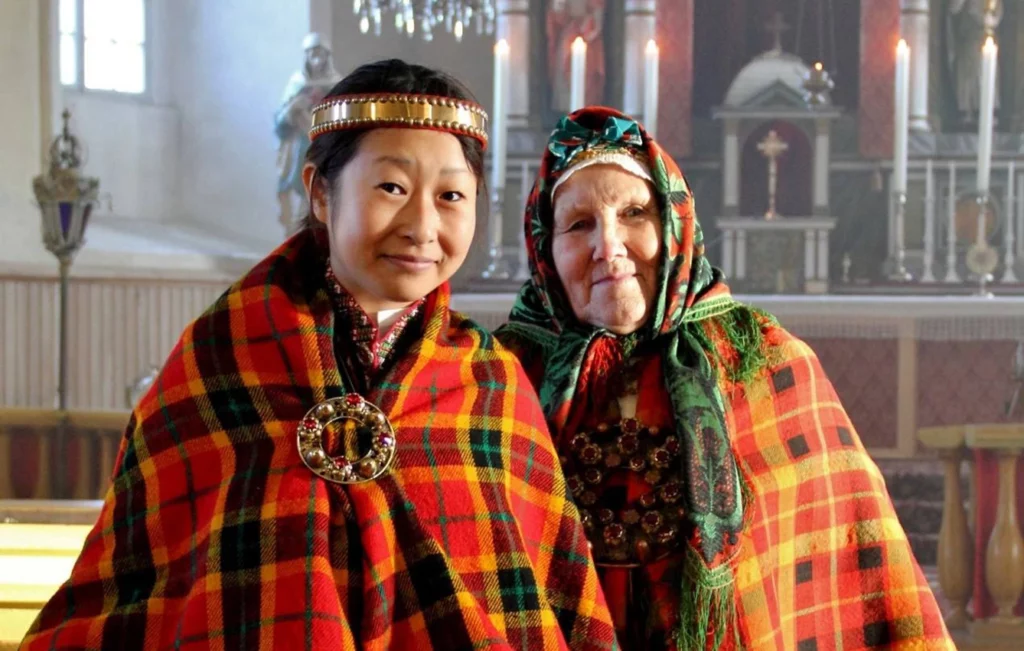
Symbols of the Suiti – song, dress, and the sklandrausis
Several distinct elements characterize the Suiti. Recognized throughout Latvia, the sklandrausis may be the most renowned edible symbol of the Suiti Cultural Space. The potato and carrot-filled rye dough tart is a simple and satisfying comfort food.
The Suiti are also recognized for their bright orange, red, and pink folk costumes. It is said that Johann Schwerin called for colorful clothing so that his people would stand out from the Lutherans even from afar. The Polish influence may also have played its part in establishing the color scheme.
Besides being visually striking, the Suiti can be heard from afar thanks to their peculiar vocal drone or bourdon singing and bagpipe playing. Interestingly, it is mostly the women who sing, and they usually do so in pairs. Today, ensembles perform on occasions like village fairs and weddings. The Suiti have their own wedding traditions, too.
A magical bridge between Alsunga and Japan
In 2017, a very special wedding ceremony took place in Alsunga involving a young Japanese couple. The bride – Norie Tsuruta – is an anthropologist who studied the Suiti as part of her master’s studies. Having spent a lot of time in Latvia, she befriended a local elder, Marija Steimane, aka ‘Ručs’, whose home she stayed at on her field trips. They kept their cross-generational friendship alive through letters, and Norie continued to visit Latvia with her husband and wider family. The heartwarming story of the two women’s friendship is seen in the 2015 documentary film Ruch and Norie (Ručs un Norie), which captures the magical spirit of the Suiti and how it inspired a young Japanese woman to learn the Latvian language and local customs.


